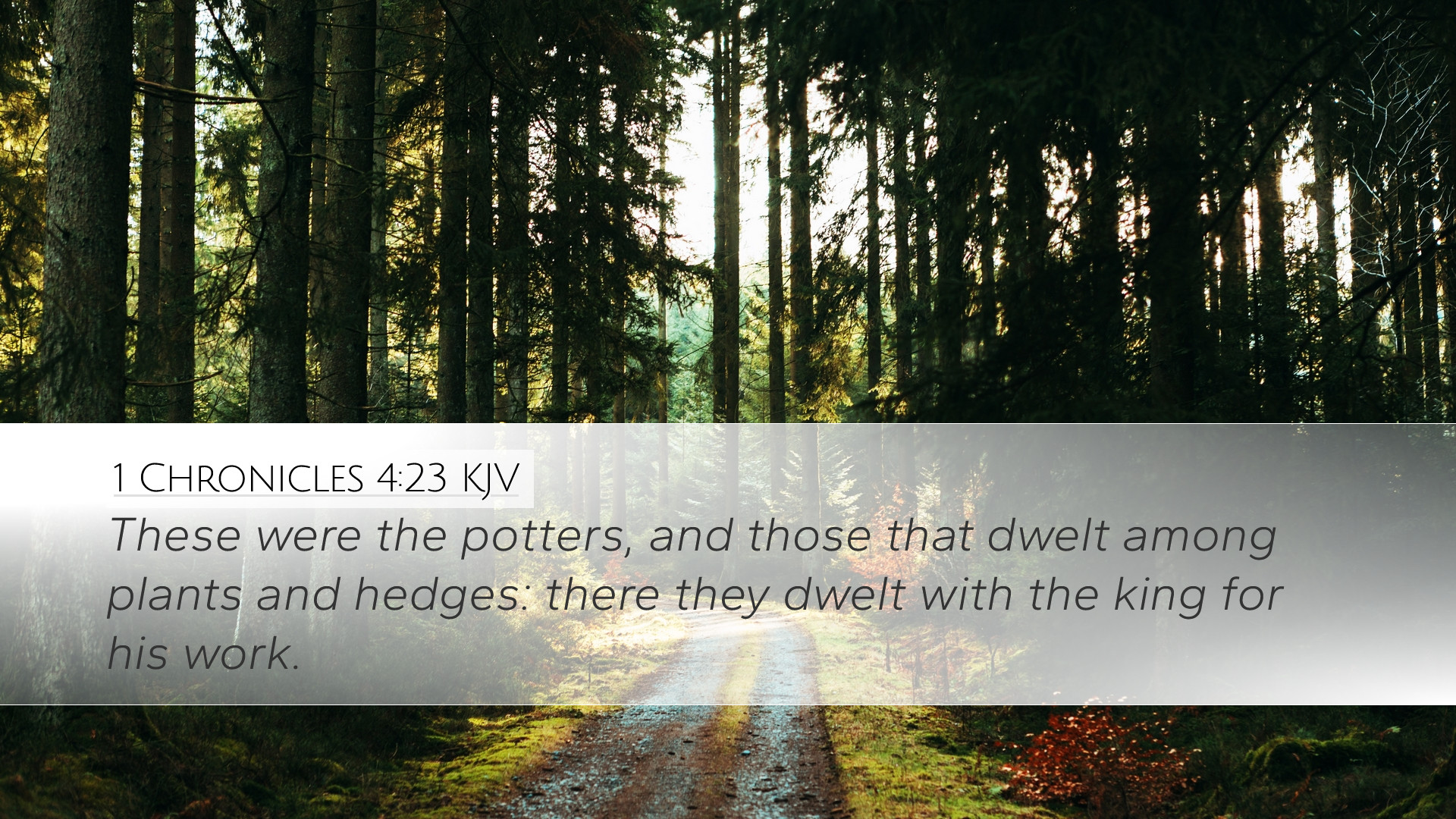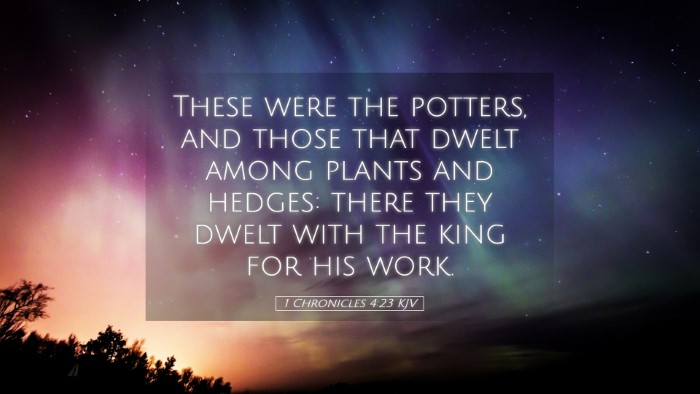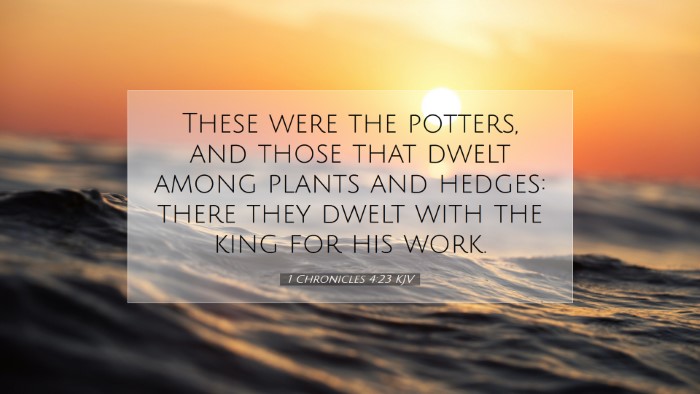Commentary on 1 Chronicles 4:23
Verse: “These are the potters, and those that dwell among plants and hedges: there they dwelled with the king for his work.”
Introduction
This verse provides a glimpse into the social structure and roles within the community during the time of David. In this context, it discusses the potters, a group of artisans who had a significant role in daily life and labor. Their dwelling among plants and hedges suggests a connection to agriculture and the land, indicating both the creativity and service in their crafts.
Insights from Public Domain Commentaries
Commentary by Matthew Henry
Matthew Henry emphasizes the importance of recognizing the lower aspects of society and their integral role in the advancement of the kingdom of God. He points out that the mention of potters reflects how all professions contribute to the community's welfare. Henry notes:
- Potters were essential for producing various utensils for everyday life, indicating God's provision for practical needs.
- By placing these artisans among plants and hedges, it illustrates their connection to the earth—a theme resonant with many Biblical principles where work and land intertwine.
- The phrase “dwelled with the king for his work” highlights the dignified role of these laborers in the royal service, reflecting that leadership in the kingdom respects all forms of work.
Commentary by Albert Barnes
Albert Barnes adds layers to the character and significance of the potters mentioned in this verse. He notes that they were not just common workers but were “living among the king.” This shows their recognized status, possibly due to their skills and contributions:
- Their work as potters could also symbolize the shaping of the community, much like how God shapes His people.
- Barnes also emphasizes the beauty of diversity in the kingdom of God, where different gifts and skills are woven together for a common purpose.
- Furthermore, Barnes points out that the term “plants and hedges” could denote a dual significance—representing the cultivation of both nature and the people’s skills.
Commentary by Adam Clarke
Adam Clarke provides historical and cultural context regarding the potters. He elaborates on the practical significance of pottery in ancient Israel and its ceremonial aspects:
- According to Clarke, potters made items necessary for both domestic use and for sacrificial rites, tying their work into religious practices.
- He adds that the dwellings among hedges suggest a lifestyle that is both reflective and functional, showing the potters’ harmonious existence with nature.
- Clarke interprets their dwelling with the king as an acknowledgment of their important contributions, suggesting that the king depended on these skilled artisans to fulfill various needs.
Theological Reflections
The verse allows for a deeper theological reflection on how the mundane tasks of life are intertwined with divine purpose:
- Divine Providence: The mention of potters signifies God's provision for His people in all aspects of life.
- Integration of Roles: It highlights the sacredness of all vocations, encouraging believers to view their daily work as service unto the Lord.
- Community and Collaboration: It emphasizes the importance of each role in contributing to the community's well-being, encouraging unity in diversity.
- Symbolism of Creation: The craft of pottery can serve as a reminder of how God shapes and molds His people, akin to the potter with the clay (Jeremiah 18:1-6).
Conclusion
1 Chronicles 4:23 calls its readers to recognize the value and contributions of every individual, regardless of social status. The potters symbolize the necessity of all labor in God’s kingdom and remind us that work serves a dual purpose: fulfilling practical needs and being a part of the vast tapestry of God’s creative design. As pastors, students, theologians, and scholars reflect on this verse, may they draw inspiration from the lives of the potters and the broader implications of their craft within the narrative of God's purpose for His creation.


